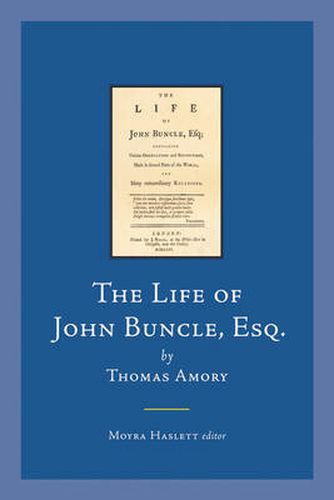Readings Newsletter
Become a Readings Member to make your shopping experience even easier.
Sign in or sign up for free!
You’re not far away from qualifying for FREE standard shipping within Australia
You’ve qualified for FREE standard shipping within Australia
The cart is loading…






Thomas Amory’s The Life of John Buncle, Esq (1756) is an appealingly eccentric fiction, in which Buncle, a student in Trinity College Dublin, embarks on a series of striking adventures and encounters in Ireland and the north of England. While the novel presents us with much that is earnest and serious, it is also full of comic elements, such as Buncle’s pole-vaulting down mountains or his vain attempts to make love to a beautiful young woman while she is intent on discussing the finer points of theology. Published three years before the appearance of Laurence Sterne’s more famous Life and Opinions of Tristram Shandy (1759-67), Amory’s novel presents us with a work of comparable complexity, both colloquial and bookish, learned and facetious. It is, as Leigh Hunt described it, ‘a book unlike any other in the language, perhaps in the world.’ (Series: Early Irish Fiction, c.1680-1820)
$9.00 standard shipping within Australia
FREE standard shipping within Australia for orders over $100.00
Express & International shipping calculated at checkout
Thomas Amory’s The Life of John Buncle, Esq (1756) is an appealingly eccentric fiction, in which Buncle, a student in Trinity College Dublin, embarks on a series of striking adventures and encounters in Ireland and the north of England. While the novel presents us with much that is earnest and serious, it is also full of comic elements, such as Buncle’s pole-vaulting down mountains or his vain attempts to make love to a beautiful young woman while she is intent on discussing the finer points of theology. Published three years before the appearance of Laurence Sterne’s more famous Life and Opinions of Tristram Shandy (1759-67), Amory’s novel presents us with a work of comparable complexity, both colloquial and bookish, learned and facetious. It is, as Leigh Hunt described it, ‘a book unlike any other in the language, perhaps in the world.’ (Series: Early Irish Fiction, c.1680-1820)